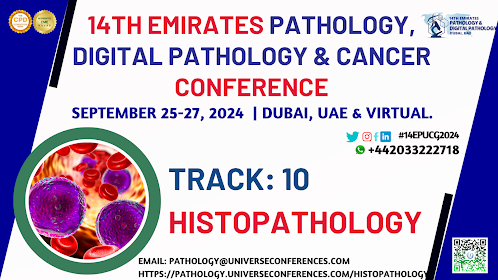Understanding Lymphoma: Types, Symptoms, and Advances in Treatment
What is Lymphoma?
Lymphoma is a type of cancer that originates in the
lymphatic system, a crucial part of the body’s immune system. The lymphatic
system includes lymph nodes, the spleen, thymus gland, and bone marrow.
Lymphoma affects lymphocytes, a type of white blood cell that helps fight
infections. There are two main types of lymphoma: Hodgkin lymphoma (HL) and
non-Hodgkin lymphoma (NHL).
Hodgkin lymphoma is characterized by the presence of
Reed-Sternberg cells, which are large, abnormal lymphocytes. HL is relatively
rare but highly treatable, especially if detected early. It often starts in the
upper body, such as the neck, chest, or armpits.
Non-Hodgkin lymphoma encompasses a diverse group of blood
cancers that differ significantly in their behavior, treatment, and prognosis.
NHL can arise in various parts of the body and is more common than HL. There
are many subtypes of NHL, including:
Diffuse large
B-cell lymphoma (DLBCL): The most common type of NHL, known for its rapid
growth.
Follicular
lymphoma: A slow-growing type that can transform into a more aggressive
form.
Mantle cell
lymphoma: A rare, aggressive type of NHL.
Burkitt lymphoma:
Known for its fast-growing nature and often associated with immune
deficiencies.
Symptoms of Lymphoma
Lymphoma symptoms can vary depending on the type and
location of the disease. Common symptoms include:
·
Swollen lymph nodes in the neck, armpits, or
groin
·
Fever
·
Night sweats
·
Unexplained weight loss
·
Fatigue
·
Itchy skin
·
Coughing or chest pain if the lymphoma is in the
chest
Diagnosing lymphoma typically involves a combination of
physical exams, blood tests, imaging studies (such as CT, PET, or MRI scans),
and a biopsy of affected lymph nodes or tissues. A biopsy is crucial for
determining the type and stage of lymphoma, guiding treatment decisions.
Advances in
Lymphoma Treatment
Treatment for lymphoma depends on the type, stage, and
individual patient factors. Advances in medical research have led to improved
outcomes and new treatment options, including:
Chemotherapy remains a cornerstone of lymphoma treatment,
often used in combination with other therapies. It involves using drugs to kill
rapidly dividing cancer cells.
Radiation therapy uses high-energy rays to target and kill
cancer cells. It is often used in early-stage HL and as part of combination
therapy for NHL.
Immunotherapy leverages the body’s immune system to fight
cancer. Monoclonal antibodies, such as rituximab, target specific proteins on
cancer cells, enhancing the immune response against them.
Targeted therapies focus on specific molecules involved in
cancer growth and survival. Drugs like ibrutinib and venetoclax have shown
promise in treating certain subtypes of NHL.
Stem cell transplant, or bone marrow transplant, is used to
replace damaged bone marrow with healthy stem cells. It is often considered for
aggressive or relapsed lymphomas.
Chimeric Antigen Receptor (CAR) T-cell therapy is a
groundbreaking treatment that modifies a patient’s T cells to target and kill
cancer cells. It has shown remarkable success in treating certain types of
relapsed or refractory NHL.
A lymphoma diagnosis can be overwhelming, but advancements
in treatment offer hope for many patients. Supportive care, including
psychological support, nutrition, and physical activity, plays a vital role in
managing the disease and improving quality of life.
Lymphoma is a complex and diverse group of cancers with
promising treatment
advances continually emerging. Early detection and personalized treatment plans
are key to improving outcomes. If you or a loved one are experiencing symptoms
or have been diagnosed with lymphoma, consult with a healthcare provider to
explore the best treatment options available.
For more information and support, consider joining a
lymphoma advocacy group or online community. Staying informed and connected can
make a significant difference in your journey with lymphoma.
Conference
Name: 14th Emirates
Pathology, Digital Pathology & Cancer Conference
Short Name:
14EPUCG2024
Dates: December
17-19, 2024
Venue: Holiday
Inn Dubai, UAE & Online
Email: pathology@universeconferences.com
Visit: https://pathology.universeconferences.com/
Submit here: https://pathology.universeconferences.com/submit-abstract/
Register here: https://pathology.universeconferences.com/registration/
Online Registration here: https://pathology.universeconferences.com/virtual-registration/
Call Us:
+12073070027
WhatsApp us at:
https://wa.me/442033222718?text=
#Lymphoma #HodgkinLymphoma #NonHodgkinLymphoma
#LymphomaAwareness #LymphomaResearch #LymphomaTreatment #LymphomaSupport
#BloodCancer #CancerAwareness #FightLymphoma #LymphomaSurvivor #LymphomaWarrior
#CureLymphoma #EndLymphoma #LymphomaCare #LymphomaCommunity #LymphomaSymptoms
#LymphomaDiagnosis #LymphomaAdvocacy #Pathology



.png)
Comments
Post a Comment